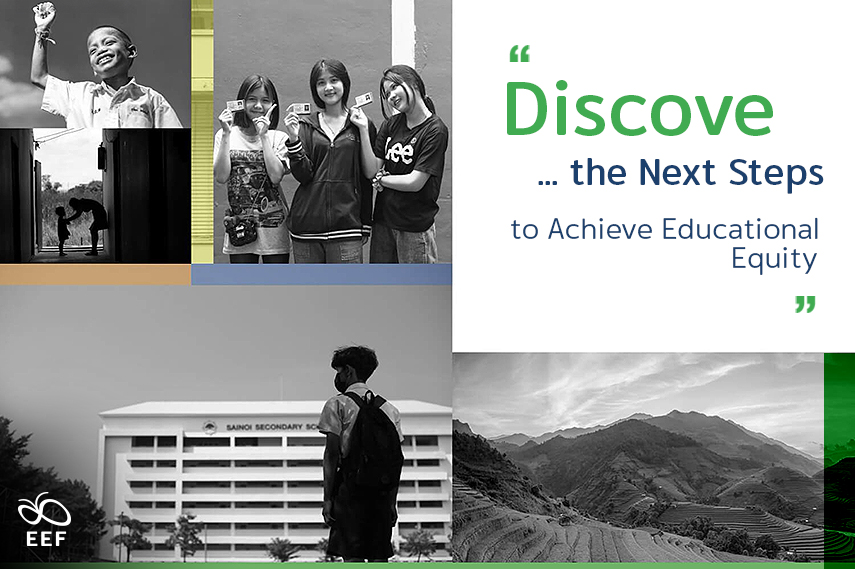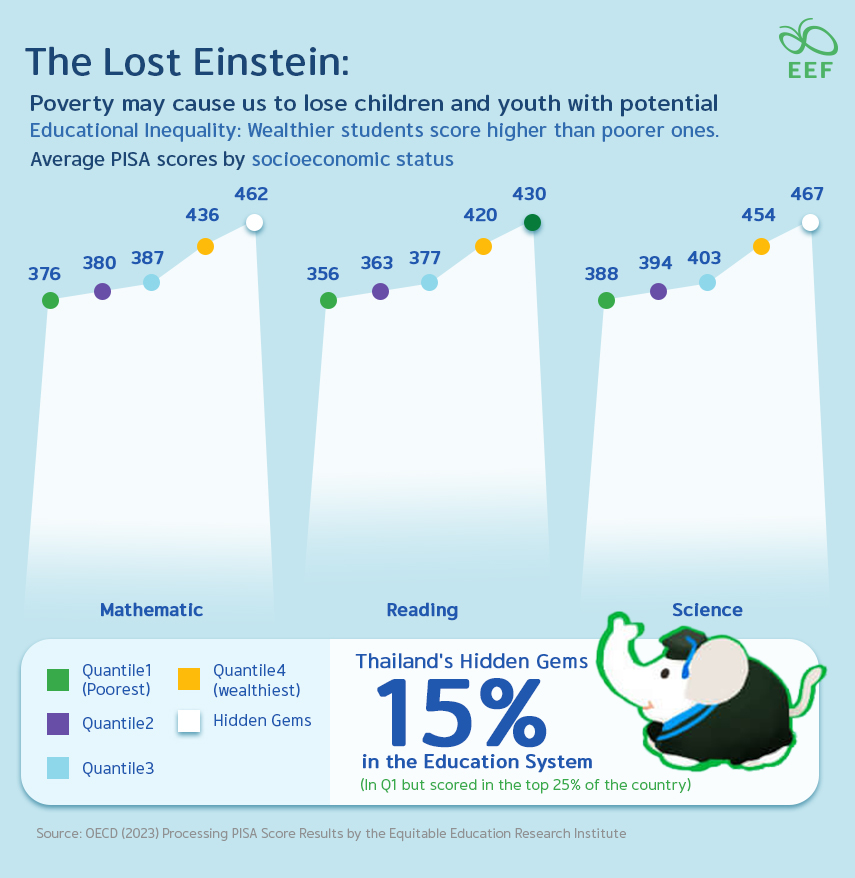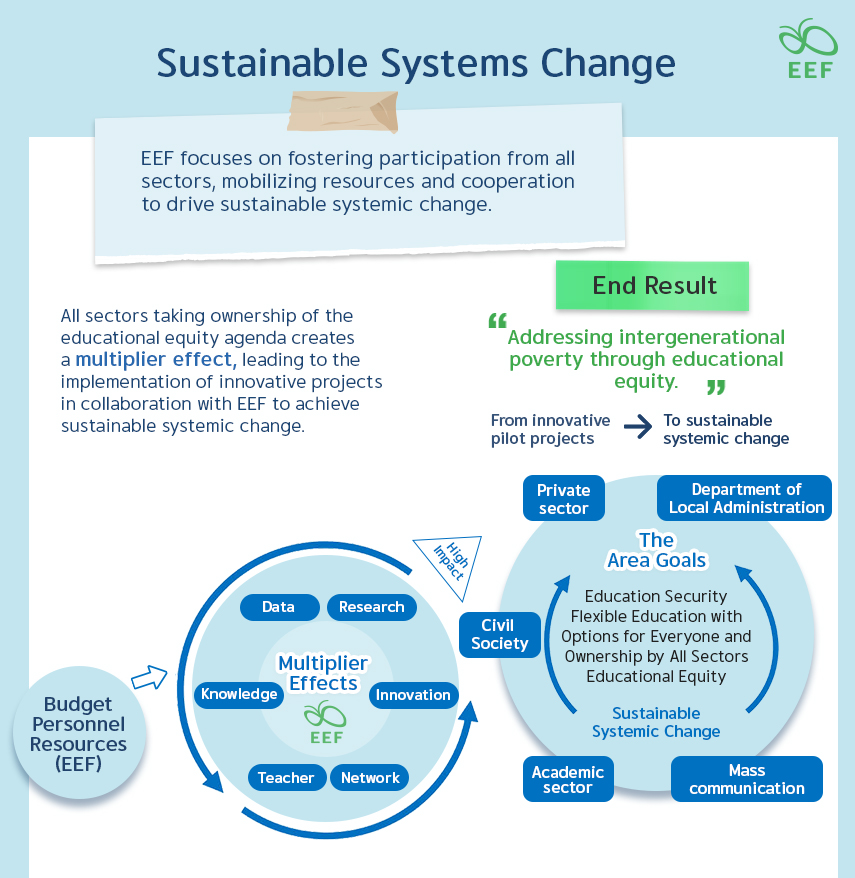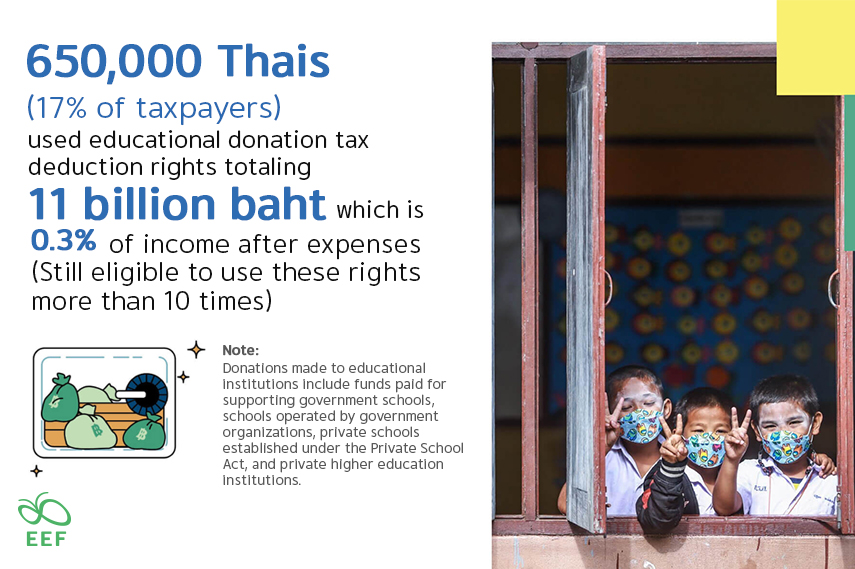
‘Hope’ and ‘Strength’ from all parties.
Dr. Kraiyos Patrawart, Managing Director of the Equitable Education Fund (EEF), stated at the ‘All for Education: Education For All – Empowering the Nation for Every Thai Child’ forum during the ‘Empowering Changemakers and Learning Innovators for Every Child’ event at the IMPACT Forum, Muang Thong Thani, that his five years of experience with the EEF show that sustainable solutions to educational inequality stem from partnerships with networks of experienced individuals nationwide. These networks possess the knowledge, data, and innovations needed to understand the unique contexts of children and families in each area.
Over the past five years, the EEF has been actively engaged in academic and operational efforts across various regions, collaborating with individuals, organizations, and agencies nationwide. Through these partnerships, the EEF has gained crucial data and witnessed significant, tangible changes.

A key change observed was the identification of the target group.
Over the past year, significant progress has been made in harnessing the power of data. Contributions from all sectors have allowed us to confirm, through national identification numbers, that Thailand has approximately 1.8 million children and youth in compulsory education living in poverty or extreme poverty. Additionally, around 394,000 children aged 5–14 are out of the education system and urgently need support to access educational and employment opportunities.
“We have data showing that these young individuals are not only filled with dreams and hopes but also possess potential comparable to anyone else. According to the 2022 PISA assessment, Thailand has ‘hidden gems’: children from the lowest 20% income bracket who excel academically and rank among the top in the country. This group represents up to 15%. If these bright students receive the proper support, they could become a valuable resource for the nation.”

Dr. Kraiyos emphasized that the EEF firmly believes in everyone’s power, especially the network of partnerships working at the local level, including schools and communities, which can emerge as leaders of change. If teachers can become “Agentic Teachers,” schools and communities can also become catalysts for transformation. Parents can take on leadership roles within their areas. By working together in unity, each region can shape a future where students have access to learning opportunities that lead to meaningful employment. Education will no longer be confined to the traditional path of attending school or university but will offer diverse outcomes aligned with learners’ needs and the demands of the country and employers.
“We believe that local empowerment can drive sustainable change. Over the past five years, we have developed numerous innovative models and case studies. I invite everyone to learn from these experiences, whether through creating learning pathways that integrate work experience with businesses, leveraging local wisdom, or supporting changemakers who establish public benefit organizations—whether local administrative bodies, community groups, or through learning technologies like mobile schools that break the boundaries of traditional classrooms. Additionally, we aim to create opportunities by leveraging relevant laws or regulations, such as the ‘One School, Three Systems’ innovation, developed through collaboration to offer diverse pathways that cater to each child’s unique potential.”
“It is undeniable that achieving educational equity requires resources beyond just financial support. It involves various other factors. What’s crucial is focusing on reducing vertical educational inequality and recognizing that children have diverse needs. Schools, teachers, and areas experiencing inequality must adopt tailored approaches for personnel allocation, budgeting, and working methods that address the specific needs of different groups and areas, breaking down barriers to education.”

The EEF Thailand Manager also noted, “The Revenue Department, under the Ministry of Finance, has found that despite Thailand offering double tax deductions for donations to education for a long time, there are currently only 650,000 donors. This indicates that there is still potential for more than ten times that amount in donations to support collaborative efforts. Therefore, we invite the private sector and all citizens to unite as changemaker forces to achieve the unified goal of ‘All For Education: Education For All.'”

“Finally, as a small organization, the EEF cannot achieve educational equity alone without support from everyone, which acts as a ‘multiplier’ to maximize the potential for change. As the challenge of reducing educational inequality becomes more complex and evolves rapidly, we need multipliers in knowledge, data, innovation, networks, and research. When these multipliers come together, they will create a strong leverage point, connecting with local areas to drive change.”

